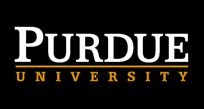Purdue University - Micro Imaging Technology Strategic Research on Rapid Detection of Pathogens

San Clemente, CA. October 1, 2013....Micro Imaging Technology, Inc. (OTCQB: MMTC) announced today a strategic research collaboration with Purdue University to prove the concept of faster, cheaper, and easier pathogen testing for Listeria and Listeria monocytogenes in foods using laser light scattering. The partnership pairs similar laser light scattering technologies developed independently by each contributor to demonstrate the speed and accuracy of using non-biological methods to provide a simple, rapid, and cost-effective solution to food pathogen testing.
Dr. Arun Bhunia, BVSc, PhD, Professor of Food Microbiology at the Purdue University Department of Food Science, will direct the Purdue portion of the research together with Dr. Euiwon Bae, a mechanical engineer, at his facilities in West Lafayette, IN. Prof. Bhunia received his Ph.D. in Food Microbiology at the University of Wyoming. A recent recipient of Purdue’s Outstanding Graduate Educator (College of Agriculture), Dr. Bhunia’s research has focused on the development of novel detection and diagnostic tools for food borne pathogens employing optical and electrical biosensors, including light scattering based sensors. Dr. Bhunia’s group developed Purdue’s BARDOT (Bacterial Rapid Detection using Optical scattering Technology,) a colony-based bacterial screening system that very rapidly scans and detects pathogens on culture plates.
Micro Imaging Technology’s Chief Scientist, Dr. David Haavig, is the Program Director of the effort and also will lead MIT’s efforts in the collaboration. Coincidentally, he received his Ph.D. in Physics from Purdue University in 1983. Dr. Haavig was instrumental in developing the MIT 1000, a bacterial cell based identification system that can identify pathogenic bacteria in three (3) minutes (average) at significant cost savings per test. “The synergy of these two systems for independent detection (BARDOT) and confirmation (MIT 1000) of the presence of pathogens in food is fantastic. This is a win-win program,” Dr. Haavig remarked. “It benefits MIT, Purdue and its students, as well as the entirety of the food industry and consumers worldwide. We cannot be more pleased to be working with Dr. Bhunia and his staff.”
About: Purdue University
Purdue University is a major education and research institution known for discoveries in science, technology, engineering, math and beyond. Founded in 1869 in West Lafayette, Indiana, the University proudly serves its state as well as the nation and the world. More than 39,000 students from all 50 states and 130 countries, along with some 850 student organizations and Big Ten Boilermaker athletics, make for a lively environment.
About: Micro Imaging Technology, Inc.
Micro Imaging Technology, Inc. is a California-based public company that is also registered to do business under the name Micro Identification Technologies. MIT has developed and patented the MIT 1000, a stand-alone, rapid, optically-based, software driven system that can identify pathogenic bacteria and complete an identification test, after culturing, in three (3) minutes (average) at the lowest cost per test when compared to any other conventional method. It does not rely on chemical or biological agents, conventional processing, fluorescent tags, gas chromatography or DNA analysis. The process requires only clean filtered water and a sample of the unknown bacteria. Revenues for all rapid testing methods exceed $5 billion annually – with food safety accounting for over $3.5 billion, which is expected to surpass $4.7 billion by 2015 according to BCC Research. In addition, the recently passed “New” U.S. Food Safety Bill is expected to further accelerate the current annual growth rate of 6.6 percent.
In June 2009, the AOAC Research Institute (AOAC RI) awarded the Company Performance Tested Methods SM (PTM) certification for the rapid identification of Listeria. The AOAC RI provides an independent third party evaluation and expert reviews of methods and will award PTM certification to methods that demonstrate performance levels equivalent or better than other certified bacteria identifying methods. The MIT System underwent hundreds of individual tests, including ruggedness and accuracy, to earn AOAC RI’s certification for the identification of Listeria.
You can find more information about our company and about Micro Identification TechnologiesTM. Please visit our newly enhanced website at www.micro-identification.com.